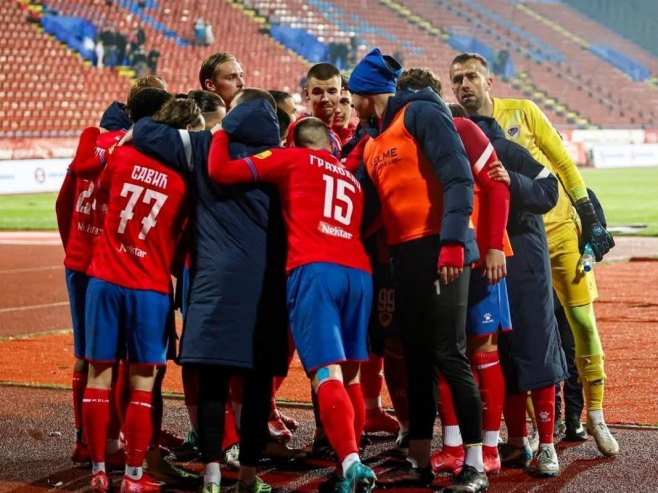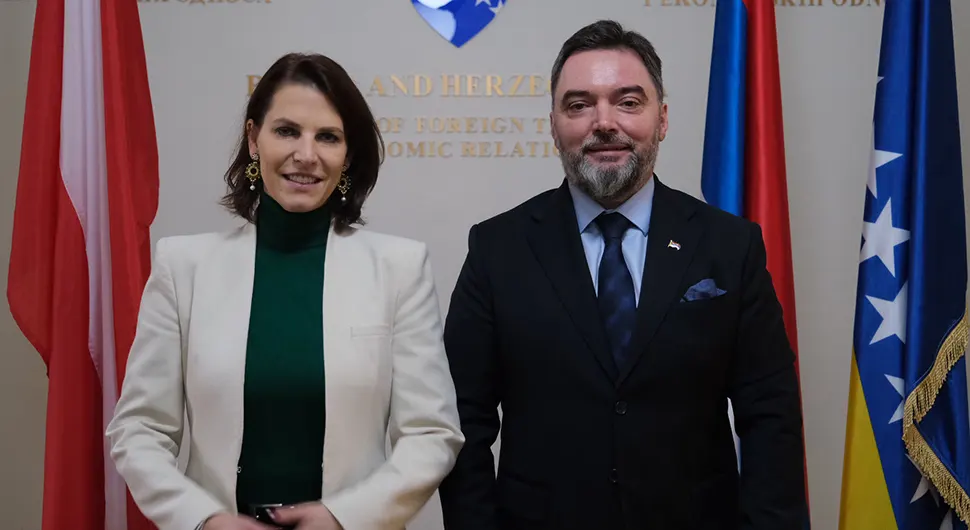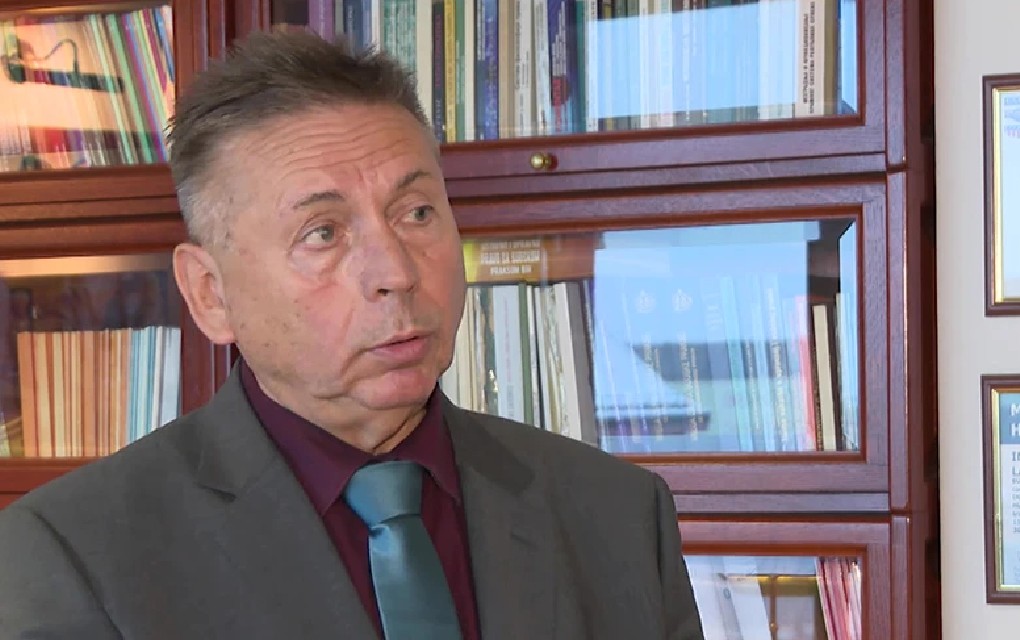Deputy Chairman of the Council of Ministers of Bosnia and Herzegovina and Minister of Foreign Trade and Economic Relations of Bosnia and Herzegovina, Staša Košarac, discussed current political issues today in Sarajevo with Austria’s Federal Minister for EU and Constitutional Affairs, Karolina Edštadler.
Košarac expressed gratitude to Austria for its continuous support of Bosnia and Herzegovina in its European path and the granting of candidate status for EU membership, as well as strong advocacy for the possibility of opening negotiations with the EU.
He emphasized that Republika Srpska supports the implementation of the 14 priorities outlined in the European Commission’s Opinion integrally and as a package, in order for Bosnia and Herzegovina to ultimately become an equal partner and member of the EU.
“In this process, the primary issue for Republika Srpska is the adoption of laws regarding the Constitutional Court of Bosnia and Herzegovina and the departure of foreign judges from this institution, as well as the closure of the OHR (Office of the High Representative), because without this, we cannot make key steps towards the EU,” highlighted Košarac.
He stressed that Republika Srpska fully advocates for an internal agreement between the two entities and the three constituent peoples within the framework of the Dayton Peace Agreement, without interference by foreigners in internal affairs and decision-making processes.
“In the past, numerous high representatives imposed various solutions that did not bring anything good to this country. On the contrary, they undermined the Dayton Agreement and produced additional distrust in Bosnia and Herzegovina,” Minister Košarac emphasized.
He informed his counterpart that Republika Srpska does not recognize Christian Schmidt as the High Representative in Bosnia and Herzegovina because he was not appointed in accordance with Annex 10 of the Dayton Peace Agreement.
“It is senseless, unreasonable, and undemocratic for an illegal and illegitimate foreigner to impose their will as laws in Bosnia and Herzegovina and, based on that, politically persecute the legally and legitimately elected President of Republika Srpska and its institutions, which act in accordance with the Constitution and laws,” Košarac conveyed.
In this regard, Minister Košarac reiterated that political attacks on the leadership and institutions of Republika Srpska are unacceptable, and any attempts to usurp or confiscate its property are unconstitutional and against the Dayton Agreement.
“According to the Dayton Agreement, the property belongs to Republika Srpska and the Federation of Bosnia and Herzegovina. That is the red line that Republika Srpska will not cross. Anything else would be a dangerous precedent with unforeseeable consequences,” Košarac stated.
He dismissed as unfounded and inaccurate the narratives from parts of the international community, primarily the U.S. Embassy in Bosnia and Herzegovina and the illegitimate Christian Schmidt, as well as certain political structures from the Federation of Bosnia and Herzegovina, claiming that Republika Srpska is the cause of political instability and blocking Bosnia and Herzegovina’s path to the EU.
“On the contrary, the standstill is happening because political structures from the Federation of Bosnia and Herzegovina did not adhere to the previous political agreement regarding the realization of the 14 key priorities. Republika Srpska, on the other hand, has supported all European laws adopted jointly,” Košarac added.
He deemed it unacceptable for European officials to discuss EU integration in Bosnia and Herzegovina with foreign citizen Schmidt and to create solutions against Republika Srpska’s interests in agreement with political structures from the Federation of Bosnia and Herzegovina.
“We have recognized various forms of modeling and malign influence from some Western countries in that context, but Republika Srpska will never agree to solutions contrary to its interests, Constitution, and the Dayton Agreement. Our stance is that all solutions for Bosnia and Herzegovina must result from the agreement of domestic political representatives, who were legally and legitimately elected in democratic elections,” concluded Košarac.









